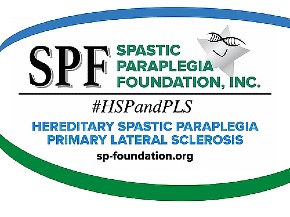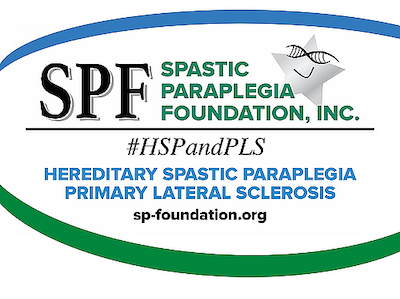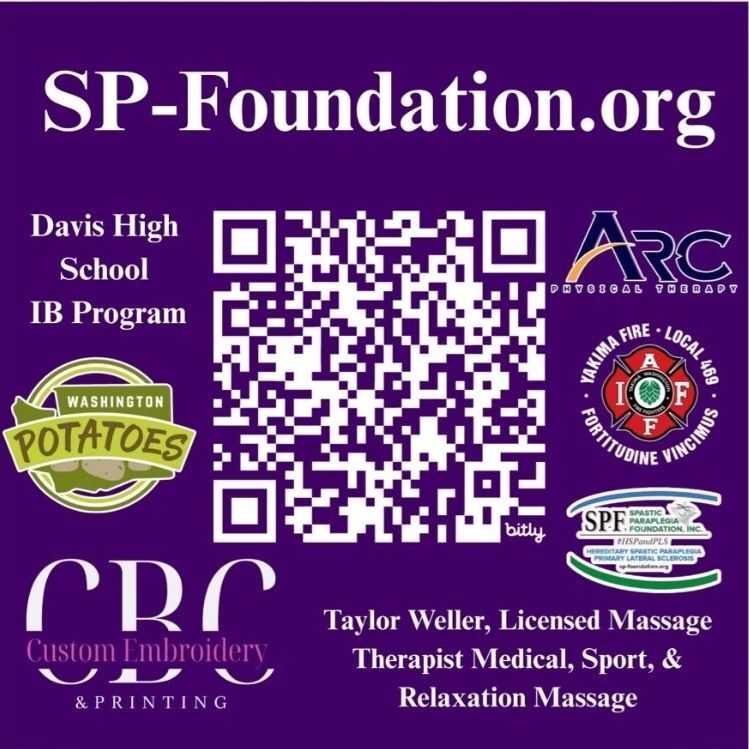Every Reason to Hope - Understanding the Current State of HSP Research
"Enough genes have been identified and sufficient animal and in vitro models have been created to permit development of drug or gene therapy for multiple types of HSP and PLS. This is expensive research requiring many millions of dollars annually. As individuals and as a community we have to work tirelessly, creatively, and collaboratively, assured in the knowledge that our goals of treatment are completely achievable."
Dr. John Fink, Spastic Paraplegia Foundation medical advisor, HSP researcher, and professor in the Department of Neurology and director of the Neurogenetic Disorders Program at the University of Michigan Medical School
Introduction
When my two-year-old daughter, Brianna, was diagnosed in 2010, it seemed like a cure for HSP might just be around the corner: New genes were being discovered all the time, great strides were (and still are) being made in understanding of how the neural pathways involved in making muscles move actually work, stems cells were being held out as a potential treatment option and so on.
Yet, six years on, it feels like we are no closer to treatment, let alone a cure. And, in some ways, those feelings are valid. For all its miracles, medical research moves very slowly, very deliberatively. There are good reasons for this. Even the most promising therapies rarely make it past the third round of clinical trials. The human body is a massively complicated machine and when you try to affect just one very small part of it, like a motor neuron, without affecting all the other parts, it is very, very difficult to do.
Still, there is every reason to believe that a treatment or a cure for HSP is possible -- indeed probable. I continually find more reasons to be hopeful than not and so do the research scientists and doctors I talk to. But, just like four years ago when I wrote my first HSP research review article, there is, I'm sorry to say, nothing in the near-term that will substantially impact either the progression of the disease or its symptoms.
Every reason to hope
Okay, so that's the bad news. The good news is researchers have made enough headway into understanding the basic biology of HSP that many are moving into actively seeking therapeutics.
"If you were to talk to me four years ago, I would have been talking about generating a mouse model for a certain form of HSP," said Dr. Craig Blackstone, Ph.D., a senior researcher at the National Institutes of Health, who has been studying HSP for years. "Now I'm not talking about generating one, I'm talking about using that model and trying to see if I can make that animal better.
"A recently released paper, for example, points to four FDA approved compounds that have been found to "rescue" (meaning to alleviate the symptoms of) HSP in three model organisms: zebrafish, fruit flies, and a worm called c.elgans – three of the most commonly studied animal models for HSP. To put this into context, these organisms are a long way from humans so these findings may never amount to a treatment but, combined with the work of other researchers from other disciplines, the implications are very positive. For example, the reason these compounds were studied at all is because ALS researchers discovered they could potentially have positive impact on that disease.
For his part, Blackstone and his team at the NIH are working on developing a clinical trial that will take the next step by looking at two or three actual drugs -- not just molecular compounds as in the above example. This is also an important step forward since molecular compounds, by themselves, are often toxic to humans. Compounds have to be turned into drugs that can betolerated over long time horizons and in large enough doses to have an impact. That is what Blackstone is starting to do.
"We want to use things that have the potential to be something that people can tolerate or a mouse can tolerate because, if it's intolerable or if we can't give it, then of course it's not useful or as useful moving forward," he said.
For a lot of reasons, this is a big turn of events. Researchers across the spectrum of neuro-degenerative diseases are beginning to realize there is a link between different conditions that were once considered completely unrelated. What this means in practical terms is, if drugs are discovered that benefit one of these related diseases, it might also be used to treat other, similar conditions like HSP. That is why the Spastic Paraplegia Foundation supports ALS research, for example. There are examples of this throughout medicine."
There are other disease fields, like peripheral neuropathies, where we also now see more overlap with HSP," said Dr. Stephan Züchner, Ph.D., chair and professor, Dr. John T. Macdonald Foundation Department of Human Genetics, at the University of Miami, Florida. "And again, same thing is true there. When there is no therapy, if they had a breakthrough, we would probably try it out in HSP."
Like Blackstone, Züchner is very positive about the advances of the past few years. The study of genetics in particular continues to make great strides towards our understanding of disease in general and HSP in particular. In fact, the FDA is just now beginning to approve genetic therapies and there are hundreds of trials going on around the globe. Gene therapies have also been approved by the European Union. This opens the door on whole new way to treat alldiseases, said Züchner.
But more than that, there are new HSP genes being discovered almost every other month.Every new gene gives researchers deeper understanding of how HSP works as well as potentially paving a new therapeutic path for treating it.
"We [are] seeing a very kind of mechanistic, proven overlap between genes that cause HSP that can now also cause peripheral neuropathies or ALS," said Züchner. "And, now that we have put this on a solid foundation, when therapies come along we can fairly quickly pivot from one disease to the next."
Dr. Evan Reid, principal researcher, Reid Laboratory at the University of Cambridge, UK, has been pursing research for many years that strongly suggests a common pathway by which almost all HSPs cause disease. This is very good news for patients because it simplifies the development of treatments. Fewer pathways potentially means that one drug may be able to treat a broad spectrum of symptoms even though the underlying genes may be different. This makes HSP much more attractive to drug companies, as well.
"So if you understand what the core deficit is, then you'd probably be able to treat several HSPs by using very similar approaches," said Reid. "Yeah. So I would say that's, to my mind, that is almost certain that things will pan out that way. In other words, it's one disease.
"There is a lot of precedence for this type of finding in other conditions like cancer, said Züchner, where 200 different cancer causing genes have been shown to cause symptoms via the same 12 pathways.
Research accelerating exponentially
It is a well-understood fact that knowledge and learning generates a self-reinforcing feedback loop that constantly accelerates. So, information and data begets new knowledge that generates more information and data that begets new knowledge that generates more information and data that ... well, you get the idea. The constant accumulation of net-new knowledge is causing an exponential increase in the rate of new discoveries across many disciplines. The most notable example is consumer technology (smartphones, virtual reality systems, faster and faster computers, etc.) but HSP researchers are benefiting, as well.
You may have heard of CRISPR, the inexpensive gene substitution technique that is taking the medical world by storm. While CRISPR could, one day, theoretically at least, be used to swap out HSP genes in humans to affect a cure, it is already being used in research labs around the world to speed the drug discovery process ten-fold, maybe more. When combined with motor neurons derived from stem cells, CRISPR allows researcher to quickly produce lots and lots of very accurate cellular models of HSP against which they can test different drugs and compounds.
"Now that those two are combined," said Blackstone, "it just creates so much more ability for us to ... move one step beyond the stem cells. [Researchers] are trying to study circuitry and create essentially masses of cells that mimic organs ... taking [HSP models] one step closer potentially to what you'd see in people.
"What this advancement allows for, among other things, is high-throughput screening of potentially beneficial compounds. If a pharmaceutical company gets involved in finding atreatment they could potentially screen millions of compounds at the same time, for example.
"In the past, since we didn't always have some of these steps, we would move right to the animal model, and a lot of things failed and it took a lot of time to fail," said Blackstone. "In this case, you fail much earlier, which is good, because you can trial out more options. And, if there is a failure, you can just move on to the next compound, so you don't spend all the time generating a mouse for each promising compound.
"What advances like these mean for geneticists like Züchner is they can now study lots of genes at the same time. In the past, he would be limited to studying one gene over the course of years. Now, he can study many genes in that same time frame.
Luckier than most
I know HSP is hard but everyone in the HSP community should be encouraged by the knowledge that there are more researchers than ever either directly or indirectly working on the break-throughs that will, one day, lead to a treatment. Between 2012 when I wrote my first article on HSP and today there have been 529 research papers published about HSP directly and, literally, tens of thousands of papers regarding neurodegenerative diseases in general. I know that these numbers will be of little comfort to many but they give me hope: For most people dealing with rare diseases this would be a dream come true.
Author's Notes:
To complete this article, I interviewed Dr. Craig Blackstone, Dr. Evan Reid, and Dr. Stephan Züchner, all top HSP researchers who have been studying the condition for years. I also conducted a research paper review on PubMed. Because of my daughter, I speak regularly with neurologists, physiatrists, physical therapists, and pediatricians about HSP, how it impacts the body, and what the best methods are for managing the disease.
by Allen Bernard
Our Impact since our inception...
-
Dollars Raised
Over 12,000,000 dollars for research!













